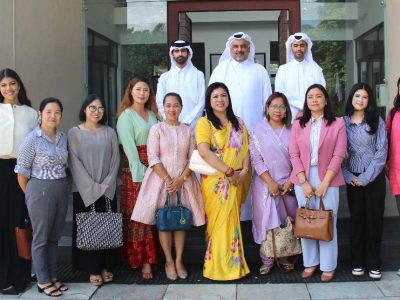Challenges of Ecosystems Management in Nepal- Reference to Agriculture

An ecosystem is a dynamic and interconnected community of living organisms (plants, animals, and microorganisms) and their physical environment, including the air, water, soil, and other natural elements. It encompasses the interactions and relationships between the biotic (living) and abiotic (non-living) components within a defined geographical area. Ecosystems can vary in scale, from a small pond to a vast forest or even the entire planet. They function as self-regulating systems, where energy flows and cycles of nutrients occur, sustaining life and enabling ecological processes. Ecosystems provide numerous services, such as habitat provision, water purification, climate regulation, and nutrient cycling, which are essential for the well-being of both nature and humans.
Ecosystems management discusses the process of understanding, conserving, and sustainably utilizing ecosystems to maintain their health, integrity, and services. It involves the coordination of various activities, policies, and practices to achieve ecological balance, promote biodiversity conservation, and meet human needs in a sustainable manner. Ecosystems management aims to strike a balance between environmental protection, social well-being, and economic development. Ecosystem management include (1) Ecosystem Assessment- we need to understand the structure, function, and dynamics of ecosystems through scientific research and monitoring and understanding of interrelationships between organisms, their habitats, and the physical and chemical processes that influence them (2) Conservation and Restoration (3) Sustainable Resource Use (4) Stakeholder Engagement (5) Policy and Governance (6) Education and Awareness- Education and outreach programs play a crucial role in promoting behavior change, fostering environmental stewardship, and building capacity for ecosystems management (7) Collaboration and Partnerships (8) Adaptive Management: Embracing an adaptive management approach that recognizes the dynamic nature of ecosystems and the need for continuous learning and adjustment. This involves monitoring and evaluating management actions, incorporating new knowledge and scientific insights, and making adaptive changes to strategies and practices as necessary.
The Challenges
The challenges of ecosystems management include climate change impacts, habitat destruction, biodiversity loss, invasive species, pollution, unsustainable resource use, inadequate policies and regulations, limited stakeholder engagement, and conflicting interests. These challenges require addressing complex ecological, social, and economic dynamics, fostering collaboration and knowledge sharing, promoting sustainable practices, and integrating ecosystem considerations into decision-making processes. Additionally, securing funding, raising awareness, and building capacity for effective management are crucial. Overcoming these challenges is essential to ensure the conservation and sustainable use of ecosystems, maintain biodiversity, and protect the vital services they provide for human well-being and the planet’s health.
Managing ecosystems in Nepal- In reference to Agriculture
Managing ecosystems in Nepal, in relation to agriculture, poses several challenges. Nepal is a country known for its diverse ecosystems, ranging from the lowland Terai region to the high Himalayas. Agriculture is a significant sector in Nepal, employing a large portion of the population and contributing to the country’s economy. However, several challenges hinder effective ecosystems management in the context of agriculture. The major challenges include:
- Topographic variation: Nepal’s diverse topography, including high mountains, hills, and plains, presents challenges for ecosystem management in agriculture. Steep slopes, fragile soils, and limited arable land make it difficult to implement sustainable agriculture practices. The management of water resources for irrigation purposes is also challenging in the mountainous terrain.
- Climate change: Nepal is highly vulnerable to the impacts of climate change, which affects agricultural ecosystems. Changing weather patterns, including irregular rainfall, increased temperature, and extreme weather events like droughts and floods, disrupt agricultural production and put stress on ecosystems. Adapting agriculture practices to climate change and mitigating its effects are critical challenges.
- Deforestation and land degradation: Deforestation and land degradation pose significant challenges to ecosystems management in Nepal. Forests are vital for maintaining ecological balance, preserving biodiversity, and regulating water resources. However, illegal logging, overgrazing, and unsustainable land-use practices contribute to deforestation and land degradation. These activities disrupt ecosystems, leading to soil erosion, reduced water availability, and loss of habitat for wildlife.
- Water resource management: Nepal is rich in water resources, but effective management is crucial for sustainable agriculture. The country relies heavily on monsoon rains, and water scarcity during the dry season poses challenges for irrigation and crop production. Ensuring equitable distribution of water resources, improving irrigation infrastructure, and implementing efficient water management techniques are essential for sustainable agriculture and ecosystem preservation.
- Biodiversity conservation: Nepal is recognized as a biodiversity hotspot, with a wide range of flora and fauna. However, biodiversity loss is a significant concern due to various factors such as habitat destruction, invasive species, and unsustainable agricultural practices. Conserving biodiversity and promoting sustainable agriculture practices that maintain the ecological balance are crucial for long-term ecosystem management.
- Limited access to technology and resources: Many farmers in Nepal, particularly in remote areas, have limited access to modern agricultural technologies and resources. Lack of access to improved seeds, fertilizers, mechanization, and knowledge about sustainable farming practices hampers effective ecosystem management. Strengthening extension services and promoting technology transfer to farmers can help address this challenge.
- Institutional and policy gaps: Weak institutional capacity, inadequate policy frameworks, and ineffective coordination among different stakeholders present challenges to ecosystem management in agriculture. Lack of clear guidelines, inadequate enforcement of regulations, and limited participation of local communities hinder sustainable agriculture practices and ecosystem conservation.
Problems of agriculture ecosystem management in Nepal
As noted above, topographic variation, climate change, deforestation and land degradation, water resource management, limited access to technology and resources, policy gaps etc. are the major challenges in agriculture management in Nepal, however, I think, one of the major challenges is the lack of political will to support to farmers and the ignorance of farmers’ concerns.
- Lack of Political Will: Insufficient prioritization and allocation of resources by the government towards sustainable agriculture and ecosystem management hinder effective implementation of policies and programs. Without strong political will, there may be inadequate enforcement of regulations, weak governance systems, and limited investment in research and development. This can impede the adoption of sustainable farming practices and hinder conservation efforts.
- Ignorance of Farmers’ Concerns: Farmers’ knowledge and perspectives are crucial for successful agriculture ecosystem management. However, if their concerns and needs are not considered, it can lead to ineffective policies and interventions. Ignorance of farmers’ knowledge and practices may result in the implementation of inappropriate strategies that do not align with local realities, making it challenging to gain their cooperation and engagement in sustainable agriculture initiatives.
In my opinion, to address the issues of the farmers, Nepal needs a multi-dimensional approach involving the government, communities, NGOs, and international support. Strengthening policies, promoting sustainable farming practices, providing technical support, investing in research and development, and raising awareness among farmers about the importance of ecosystem management are crucial steps towards achieving sustainable agriculture and preserving Nepal’s ecosystems. Addressing these challenges requires concerted efforts from various stakeholders including farmers, local and central government, civil societies, financial institution, markets, and general publics through:
- Advocacy and Awareness: Raising awareness among policymakers and politicians about the importance of agriculture ecosystem management and its impact on farmers’ livelihoods can help generate political will. Highlighting the benefits of sustainable practices, such as improved productivity, resilience to climate change, and long-term economic viability, can encourage support and action from political leaders.
- Farmer Participation and Empowerment: Involving farmers in decision-making processes and providing platforms for them to voice their concerns can help bridge the gap between policy formulation and implementation. Including farmers in training programs, capacity-building initiatives, and knowledge-sharing platforms can empower them to actively contribute to sustainable agriculture practices and ecosystem management.
- Strengthening Governance and Institutions: Enhancing governance mechanisms, establishing clear policies, and strengthening institutions responsible for agriculture ecosystem management can promote effective implementation. This includes ensuring accountability, transparency, and coordination among government agencies, non-governmental organizations (NGOs), research institutions, and community-based organizations.
- Research and Extension Services: Investing in research and development, particularly in the context of sustainable agriculture and ecosystem management, can provide evidence-based solutions. Strengthening extension services can help disseminate knowledge, best practices, and technological innovations to farmers, promoting their adoption and addressing their specific concerns.
- International Support and Partnerships: Collaboration with international organizations, donor agencies, and development partners can provide technical expertise, financial resources, and knowledge sharing opportunities. These partnerships can support capacity building, technology transfer, and policy advocacy for sustainable agriculture and ecosystem management.
By addressing the lack of political will and farmer ignorance, Nepal can foster a conducive environment for agriculture ecosystem management. This will contribute to sustainable agriculture practices, enhance ecosystem resilience, and improve the livelihoods of farmers, ensuring long-term food security and environmental sustainability.
In my opinion, the degradation of agriculture ecosystems in Nepal is a pressing issue with significant problems and consequences. Soil erosion, deforestation, improper land-use practices, and the overuse of chemical inputs have led to reduced soil fertility, loss of biodiversity, and water scarcity. This degradation hampers agricultural productivity, threatens food security, and exacerbates poverty in rural communities. To address this critical issue, sustainable land management practices should be promoted, including terracing, agroforestry, and organic farming. Strengthening policies and regulations, providing technical assistance to farmers, promoting awareness about sustainable practices, and investing in research and innovation are crucial steps towards restoring and conserving agriculture ecosystems in Nepal.
Prof. Medani P. Bhandari, PhD, is well-known humanitarian, poet, essayist, and author of hundreds of scientific papers and many books on climate science, sustainability, biodiversity, social theories and practices and inequalities. Currently, he is serving at Gandaki University, Nepal, Akamai University, USA and Sumy State University, Ukraine with various capacity. His motto is to give back to the society, whatever, he has learned, earned, and experienced.
Facebook Comment
latest Video
Trending News
- This Week
- This Month
















